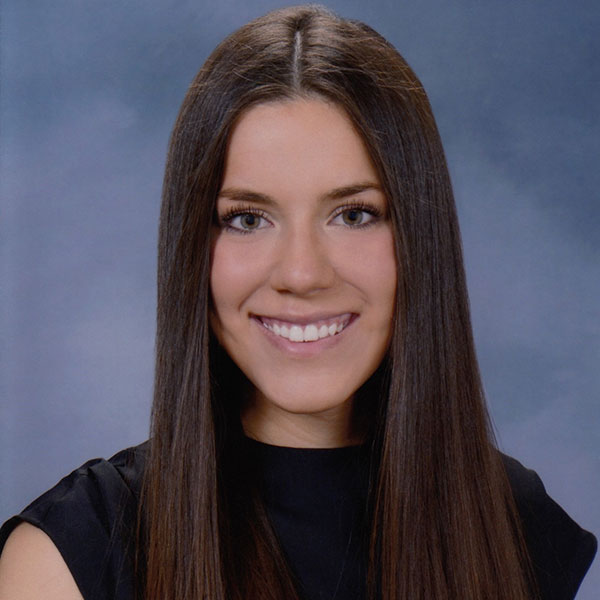Admissions/Requirements
Applicants to the Master of Science in Dietetics program must meet the following admissions standards:
Requirements
- Have a minimum grade of C or better in all prerequisite courses with the exception of NUTR 43700 (or similar) and NUTR 43800 (or similar) where a minimum acceptable grade is C-. Students with a GPA below 3.0 or those who do not meet the grade requirements for pre-requisite courses may be considered for conditional admission.
- Submit an application to DICAS by October 1 if you are a current Purdue student and are only considering Purdue’s MSD program. If you accept an offer of admission to the MSD, you are not eligible to apply to any other dietetics programs.
- Your application in DICAS requires the following:
- Personal Statement
- Resume
- Official transcripts
- Three letters of recommendation: One letter from a work or volunteer supervisor, one letter from a faculty member who taught you in a medical nutrition therapy course, and one letter that is the applicant’s choice (no friends or family members).
- Upon offer of admission to the program, you agree to follow all policies and procedures outlined in the program handbook.
- A negative drug screen and a negative criminal history of convictions prohibiting placement in supervised practice facilities are required prior to your second year in order to be eligible to enroll in supervised practice courses (NUTR 53300, 53900, 54200 and 54300). A positive drug screen or criminal history may preclude you from continuing in the program.
- A physical exam and required health screenings and immunizations must be completed prior to the start of supervised practice in the second year (due August 1)
- The GRE is not required for admission.
Prerequisites
A minimum grade of C is required in the following prerequisite courses except Micronutrient and Macronutrient Metabolism (NUTR 43700 and 43800 or similar) where a minimum acceptable grade is C-.
- 2 semesters of undergraduate chemistry (CHEM 11100/11200 or CHEM 11500/ 11600 or similar)
- Organic Chemistry (CHEM 25700 or similar)
- Food Science (NUTR 20500 or similar)
- Fundamentals of Nutrition (NUTR 31500 or similar)
- Diet Selection and Planning (NUTR 33000 or similar)
- Nutrition Counseling (NUTR 33200 or similar)
- Dietetic Practicum in Quantity Food Production (NUTR 35000 or similar) or HTM Quantity Food Production Service Laboratory (HTM 29101 or similar)
- Physiology and Nutrition During the Life Cycle (NUTR 36500 or similar)
- Communication Techniques in Foods and Nutrition (NUTR 42400 or similar)
- Public Health Nutrition (NUTR 43000 or similar)
- Nutritional Assessment (NUTR 43600 or similar)
- Macronutrient Metabolism in Human Health and Disease (NUTR 43700 or similar)
- Micronutrient and Phytochemical Metabolism in Human Health and Disease (NUTR 43800 or similar)
- Foodservice Systems Management (NUTR 44200 or similar)
- Medical Nutrition Therapy 1 (NUTR 48000 or similar)
- ServSafe Certification or equivalent
Students with a GPA below 3.00 or those who do not meet the grade requirements for pre-requisite courses, may be considered for conditional admission.
Requirements to Become a Registered Dietitian Nutritionist
The Requirements to Become a Registered Dietitian Nutritionist
ACEND® sets the guidelines for what every registered dietitian nutritionist (RDN) needs to know and do as an entry-level practitioner. The Commission on Dietetic Registration (CDR) is the governing agency that determines the eligibility requirements to take the RD Examination. As an ACEND®-accredited Coordinated Program, the MSD at Purdue University meets the first two requirements to become a Registered Dietitian Nutritionist:
- In-class learning and supervised practice experience: Students applying to the MSD at Purdue University are in the process of completing or have completed prerequisite courses offered in a Didactic Program in Nutrition and Dietetics (DPD) or similar coursework. Some of the ACEND knowledge requirements are met in pre-requisite courses. Students accepted into the MSD must be enrolled as a graduate student at Purdue University and take two semesters of graduate-level didactic coursework specific to the MSD curriculum to meet all ACEND knowledge requirements and prepare for supervised practice experiences in semesters three and four.
In addition, students must complete a minimum of 1000 hours of supervised practice experience in an ACEND®-accredited program such as the MSD. Supervised practice provides hands-on experience in community nutrition, Medical Nutrition Therapy, foodservice management, and engagement following prescribed guidelines and learning experiences to ensure mastery of all ACEND and program competencies. Students accepted into the MSD will complete supervised practice in the second-year courses of the program, after meeting all didactic course requirements in year-one. - Earn graduate degree: Upon successful completion of the MSD curriculum, students earn a Master of Science in Dietetics and are issued an official verification statement by the program director. The verification statement documents achievement of the graduate degree, attainment of all ACEND knowledge requirements and competencies and 1008 hours of supervised practice which are the requirements to be eligible to sit for the national registered dietitian examination.
- Pass the exam: Program graduates who are issued a verification statement are eligible to take the CDR credentialing exam for dietitian nutritionists. Prior to graduating from the program, interns will receive all information required to complete the eligibility requirements to take the RDN exam. Successful completion of this exam allows individuals to indicate that they are credentialed and to use the initials RDN after their name.
- Meet requirements to practice in your state. Many states have regulatory laws (i.e. licensure) for food and nutrition practitioners. All states accept the RDN credential for state licensure purposes.
The MSD at Purdue University is designed to meet all mandated steps leading to eligibility to take the exam for dietitian nutritionists. The MSD meets the Educational (IC 25-14.5-3-1) and Practice Experience Requirements (IC 25-14.5-3.3) to become a Licensed Dietitian (LD) in the state of Indiana. While state interpretations of statutes may vary, it is ACEND’s considered opinion that the program meets the educational requirements for dietetics licensure and certification in all states. However, completing an ACEND-accredited program alone does not qualify an individual for licensure or certification as a dietitian in any state. Individuals should review their state’s licensing statues and regulations to understand the specific requirements including supervised practice and examinations, needed to obtain a dietetics license. More information on state licensure and certification can be found at this link: https://www.cdrnet.org/licensure.
Interviews for Admission
All applications will be initially reviewed to determine if the minimum application requirements are met. All eligible applicants will be invited for a personal interview with the admissions committee as part of the application procedure. The admissions committee consists of the program director, faculty members and preceptors. You will be informed of the day, time and location of the interview. Interviews are typically 10-15 minutes in length. The purpose of the interview is to ascertain your level of knowledge and interest in dietetics. The interview also enables the admissions committee to assess your level of maturity, communication skills, poise, professional behavior, human-relation skills and understanding of the rigors of the program.

